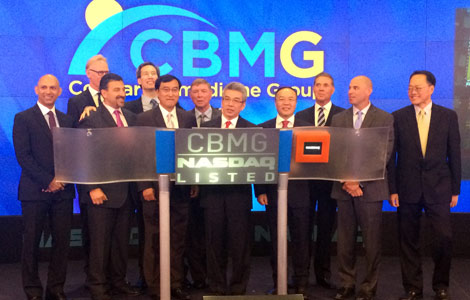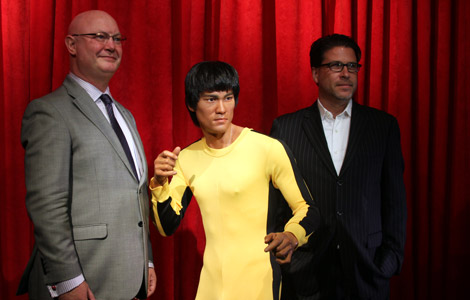Anti-'Occupy' campaign has been good for HK
Updated: 2014-08-11 05:43
By Gong Yi(HK Edition)
|
||||||||
Some commentators have recently expressed concern that the confrontation between "Occupy Central" and anti-"Occupy" movements could further polarize society. Others issued a statement warning the two sides against plunging Hong Kong into political chaos.
But the reality is that the "anti-Occupy" campaign has been good for Hong Kong.
The campaign was launched in response to the illegal "Occupy Central" movement. "Occupy" aims to derail Hong Kong's path of constitutional reform by seriously hurting the economy. By contrast, the anti-"Occupy" movement wants to prevent the "Occupy" campaign from achieving its goal. So far more than a million local residents have signed a petition supporting the anti-"Occupy" movement. This shows that it enjoys overwhelming popular backing. In fact, many opposition moderates are also against "Occupy". They too, want a lawful, peaceful and rational approach to implementing universal suffrage.
The organizers of anti-"Occupy" have collected over a million signatures in only two weeks. They also plan to hold a mass procession from Victoria Park in Causeway Bay to Chater Road in Central. The procession will allow the public to express their opposition to "Occupy" and their hopes for a peaceful implementation of universal suffrage according to the Basic Law. This is an opportunity for the silent majority to voice their desire for social stability. Hundreds of thousands are expected to join the march on Sunday, Aug 17.
The petition has already shown that the public, including many foreign nationals, overwhelmingly opposes the "Occupy" campaign. Indeed, they needed little encouragement to show their support. There is no question this is the faction that represents the majority in Hong Kong. It could also be said to command the moral high ground.
The level of public support for the anti-"Occupy" movement has shaken certain opposition figures. They have therefore joined the leading "occupiers" in a desperate attempt to change things. Some have even resorted to smear tactics. They have made groundless accusations against the anti-"Occupy" movement. Some of their followers have resorted to physical harassment at petition booths. This behavior shows the fears of many people are legitimate.
It should be noted that the anti-"Occupy" movement was launched to expose the criminal intent of the "Occupy" campaign. It also aims to raise public awareness about the potential negative impact the campaign could have on Hong Kong. It would not have begun had the "occupiers" not threatened to paralyze Central. Many Hong Kong residents were worried about the gloomy predictions of Benny Tai, the University of Hong Kong academic who initiated "Occupy". Tai had called "Occupy" a "political nuclear device".
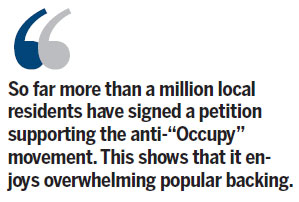
Tai and fellow "Occupy" organizers have shown they are serious about plans to blackmail the central government at the expense of the economy of Hong Kong. They have also visited local schools telling students it is acceptable to break the law in the name of "civil disobedience". Many parents were so annoyed about this they went to these schools to express their concerns.
Hong Kong has also seen violent protests at the Legislative Council Complex and the Chief Executive's Office. This was followed by a "dress rehearsal" for "Occupy Central" at Chater Garden. The "rehearsal" resulted in a sit-in without police permission after the July 1 protest march.
Such conduct has alienated these protesters from the vast majority of Hong Kong people. The anti-"Occupy" movement is an attempt to prevent the illegal campaign from carrying out its destructive goal. It aims to expose the campaign's criminal intent as stressing the importance of the rule of law. It also emphasizes the need for Hong Kong to proceed with constitutional reform in a gradual, orderly manner in accordance with the Basic Law and relevant decisions by the National People's Congress Standing Committee.
Tai and his fellow "Occupy" advocates made the mistake of underestimating Hong Kong people's ability to see through their deception. A series of public opinion polls conducted by credible research institutions reveal that most people now oppose the "Occupy" agenda. The campaign's organizers are trying to salvage the situation by spreading more misinformation, but they have already lost the battle.
The author is a current affairs commentator.
(HK Edition 08/11/2014 page9)
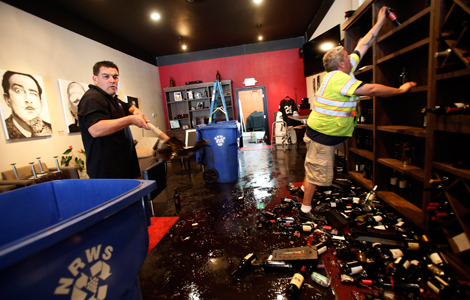
 6.1 earthquake rocks San Francisco Bay Area
6.1 earthquake rocks San Francisco Bay Area
 Auto-moulding firms eye Brazil
Auto-moulding firms eye Brazil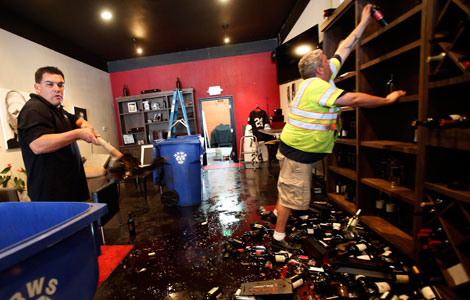
 Quake rocks California wine country, 120 injured
Quake rocks California wine country, 120 injured
 Bao Bao, blessed with many birthday wishes
Bao Bao, blessed with many birthday wishes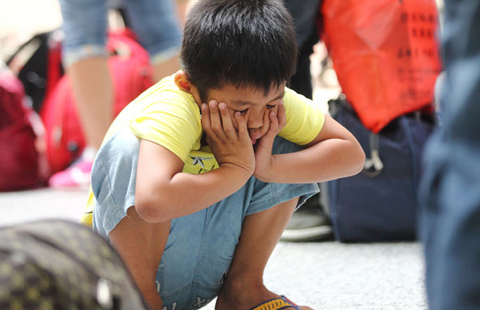
 Heartbreaking partings for 'left-behind children'
Heartbreaking partings for 'left-behind children'
 Yao Ming takes on Ice Bucket Challenge
Yao Ming takes on Ice Bucket Challenge
 Luxury automobile expo held in Beijing
Luxury automobile expo held in Beijing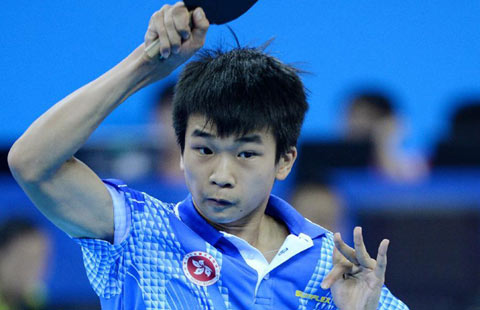
 YOG: Mixed intl team semifinal of table tennis
YOG: Mixed intl team semifinal of table tennis
Most Viewed
Editor's Picks

|

|

|

|

|

|
Today's Top News
Calif. governor declares emergency from quake
American held in Syria freed
Washington DC seeks more Chinese tourism
California hospital treats 70 plus after quake
White House aides to attend funeral of black teen
Man, 18, accused of being mastermind in imam's murder
China urges US to stop close-in surveillance
US seeks multi-prong strategy against ISIL forces
US Weekly

|

|
